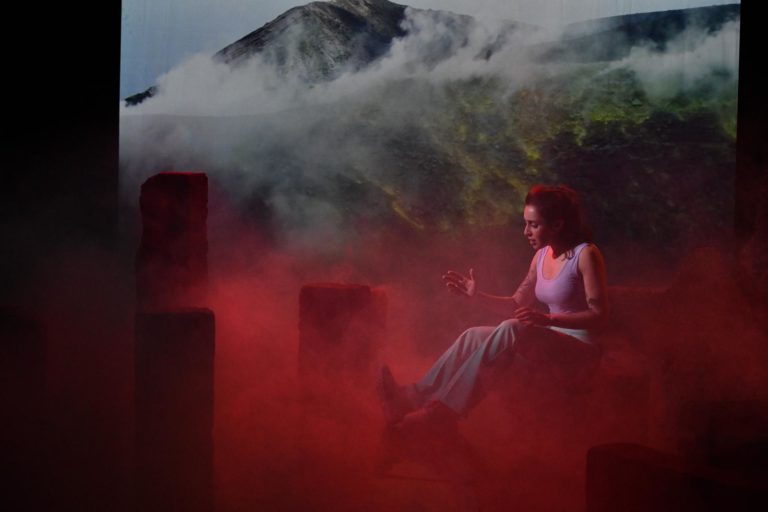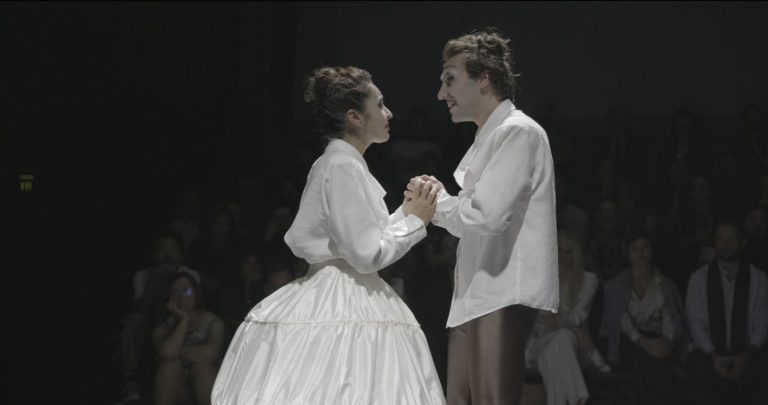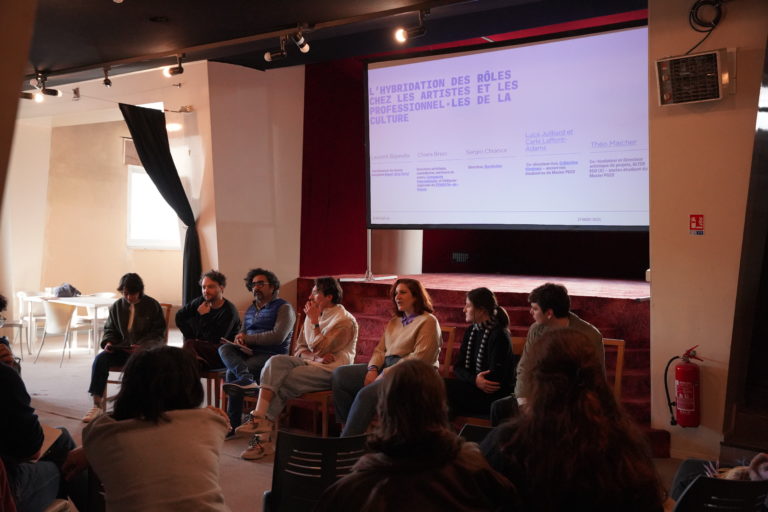Part. 2 of the series: Daydream
Author: Théo Majcher
In France, the performing arts are often idealised as a model of cultural support—fuelled by State funding, elite training institutions, and the “intermittence du spectacle” system. But for many independent theatre-makers, this dream comes with hidden costs. Beneath the polished image lies a rigid, hierarchical system that marginalises experimental work, undervalues invisible labour, and rewards conformity over creativity. Far from a utopia, the struggle for autonomy reveals a daily negotiation between artistic freedom and systemic constraint.

France’s cultural sector is often seen as a utopia: generous public funding, a prestigious network of venues, and the famous “intermittence du spectacle” scheme. From afar, it seems like a dream for artists. But when you get closer, cracks start to appear. Month after month, cuts keep on growing, calls for projects become more and more complex, and experimental forms of arts struggle to find space. Behind the egalitarian façade lies a selective system where access depends not only on talent, but also on background, networks, and diplomas.
In the theatre sector, all companies are technically independent, usually structured as non-profit. But being “independent” often means being alone. The access to social networks, funding, and recognition drastically differs depending on whether one is already “in” the field—via connections or education. France's 13 national drama schools, recognised by the Ministry of Culture, are gatekeepers to legitimacy. With acceptance rates under 5%, the system locks many artists out from the start, reinforcing a cultural aristocracy that limits the diversity of voices on stage.
And yet, theatre is as important and vital for culture and social interactions as are other cultural fields. It is a space where the political meets the poetic, where the imagination reclaims the everyday. So, we create and persist. But surviving the system demands more than vision. It requires stamina to navigate calls for projects, follow-ups, unpaid hours of administration, and constant justification. Independence, in reality, takes the shape of a complex web of precarious dependencies—on institutions, on trust, on visibility.

Experimenting Hybridity
At ALTER EGO (X), where I work, we know this story well.
We have chosen a hybrid path from the beginning—not just producing plays, but blending theatre with pedagogy, sound, documentary, and European cooperation. This hybridity was welcomed across borders, but often misunderstood at home. We staged one of our plays at the National Theatre in Belgrade, yet that same work has never been programmed in France. At home, we were often met with suspicion: “What is it that you do exactly?” Trust was hard to come by.
It is a common story; I have heard similar echoes from peers like Delphine Salquin, who has led the company NONUMOÏ for over 15 years. Like so many others, she does everything—project development, funding applications, teaching drama classes—to keep the books balanced. She never planned for this. “I wanted to be an actress and director,” she says, but the reality of the sector nudged her into full-time coordination. She works across disciplines, develops international projects, and builds connections, but her work falls outside the usual categories.
Covid hit her hard, with a performance that never resumed. Since then, it has been an uphill battle. “I feel like no one reads our applications,” she tells me, so it feels like she has to go to premieres just to be seen. She calculated that if she billed her administrative hours, she would make €1,500 a month—except she does not. The current system fails to value that kind of labour.
“Intermittence” is a major gain, but it has blind spots: it does not account for coordination, design, or management. These tasks are essential, yet they remain invisible in official frameworks—not counted, not paid, not even acknowledged.
As Thierry Bedard said in Actes If’s Indépendance & Autonomie report (2019): “I do not feel autonomous, because I do not have financial autonomy.” Artistic freedom without financial footing is an illusion.
And even when we do create, the work often does not “fit.” Delphine’s plays combine theatre and sound—a unique language. But programmers often do not know how to deal with it: “Too sound-based, not enough theatre.” It does not slot easily into a season, so it does not get programmed. It is exhausting to constantly reframe, explain, adapt—or give up. There is no space in the system for what escapes categorisation.

Scaling Collaborations
Some, like us, turn to European collaborations. There, our work is read and evaluated with care, the feedback shared in the evaluation forms of the EU are always constructive and very rare as for a French organisation (we usually don’t get feedback in national funding applications, and sometimes even no answer from private players). “I saw that someone had really read my proposal,” Delphine said. In contrast, recent cuts in France—€100 million from the Ministry of Culture, a 73% drop in intervention credits—feel like silent censorship. The erasure is subtle, but it stifles creation. It pushes artists to conform, or disappear.
Still, we keep going. We find breath in horizontal collaboration, in shared initiatives that escape the logic of gatekeeping. At ALTER EGO (X), we work across territories, aesthetics, and formats. We build spaces that prioritise artistic process and human connection. We take time and choose meaning over visibility. And that too, is a form of resistance.
Autonomy is not total—but it is possible. And often, it requires stepping outside public structures and subsidies. We do consulting, training, and offer services—not because we’re fond of neoliberalism, but because it buys us time. Time to make art that matters. This hybridity, often stigmatised in France, is our strategy for survival and freedom.
So, what next? Maybe it is time to adapt cultural policies to what is really happening on the ground. To rethink support mechanisms so they do not only reward those already “in the club.” To acknowledge that creation also happens at the margins, in the hybrids, in the unclassifiable. To honour the creative processes that blur formats and codes.
Above all, we need greater recognition for the unseen labour behind every artistic project—administration, production, and vision. Because what we make is not just content. It is part of what keeps our society breathing.
Thierry Bedard, Indépendance & Autonomie, Publication n°21, Actes If, 2019
Sophie Majou, “Entre coupes budgétaires et censure, la culture cherche son souffle,” Blast, April 2025
Interview with Delphine Salkin, April 2025
Published on May 13th, 2025
About the author:
Théo Majcher is an actor, performer, theatre director, and jazz singer. In 2019, he co-founded ALTER EGO (X) in Annecy and Paris, where he leads the European division, focusing on European cooperation projects and advocacy, and since 2023 the development of a TV talk-show. He has collaborated with ENCC (European Network of Cultural Centres) in Brussels, contributing to the organisation of the Reccord European Conference (Rethinking Research, Rethinking Cultural Centres) in partnership with Aarhus, Denmark, the 2017 European Capital of Culture. He has also worked with ETC (European Theatre Convention) in Berlin, where he managed the Artists in Residency programme, an international initiative supporting emerging artists. Additionally, he played a key role in organising the International Theatre Conference on participatory theatre in collaboration with the Stadtschauspiel Dresden in Germany.